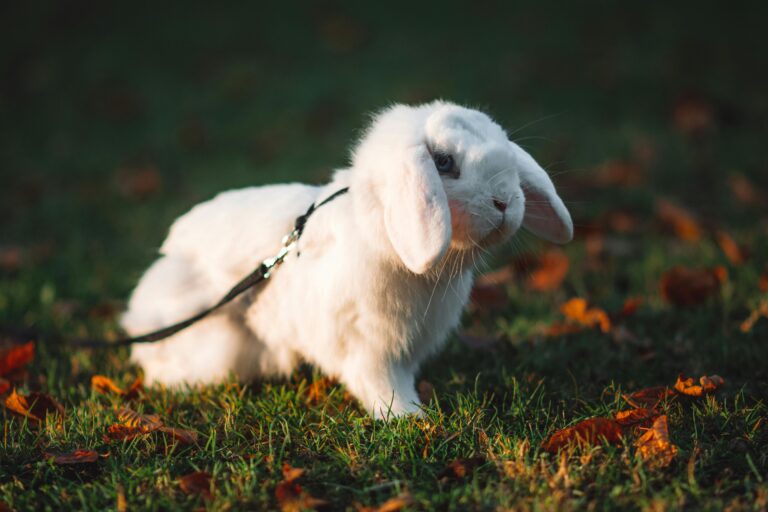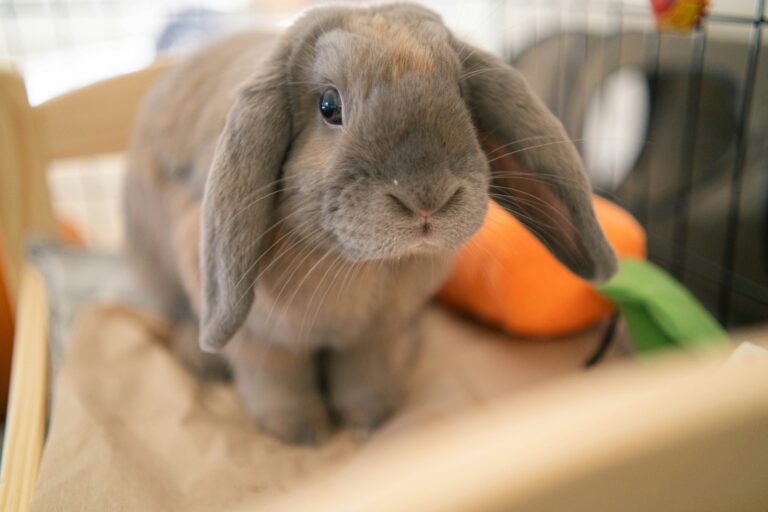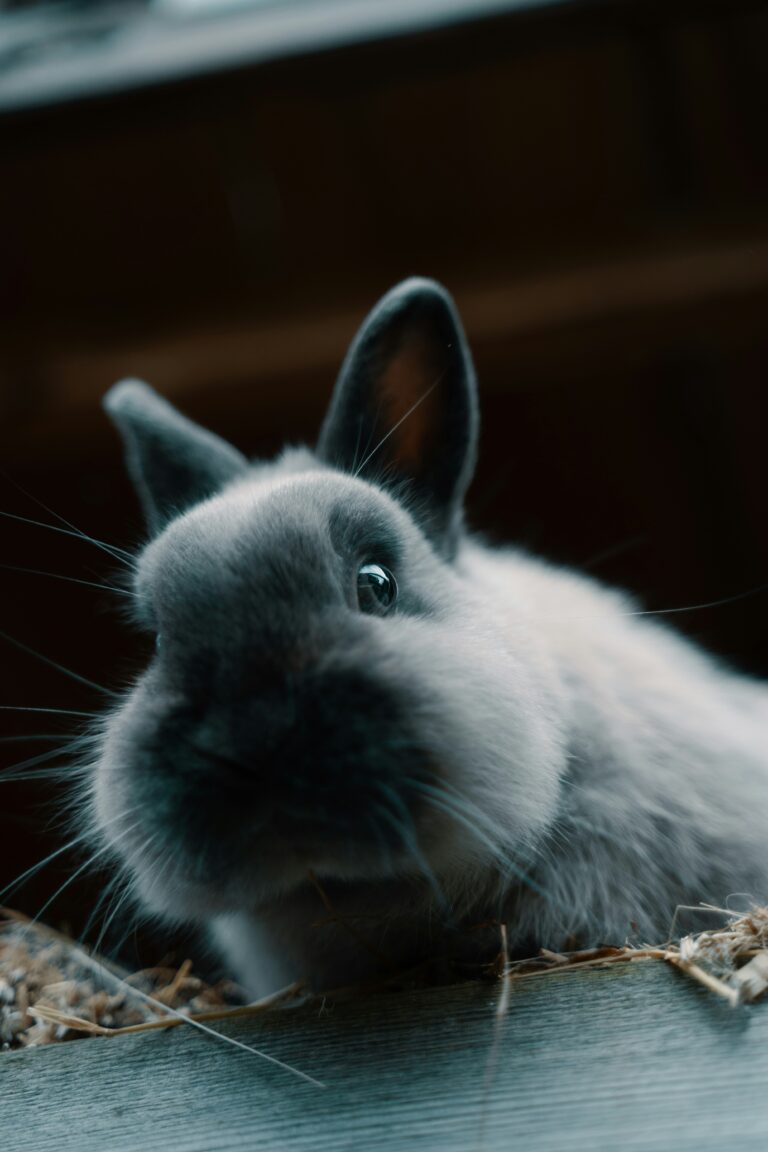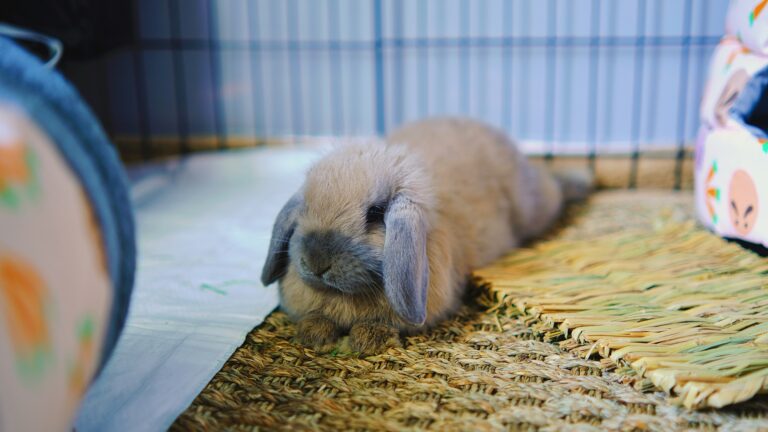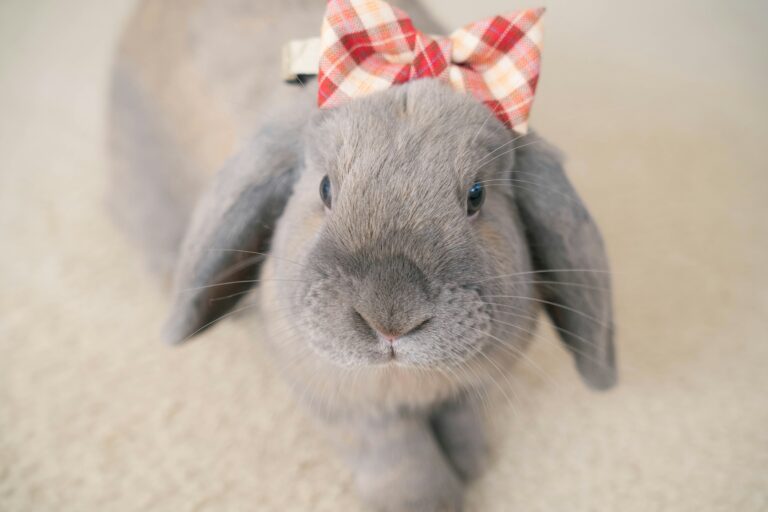What Flowers are Poisonous to Rabbits?
Do you know what’s wrong with the image below? If you said “those are daffodils!” you’re completely right!
Read on to find out why that’s a bad thing.
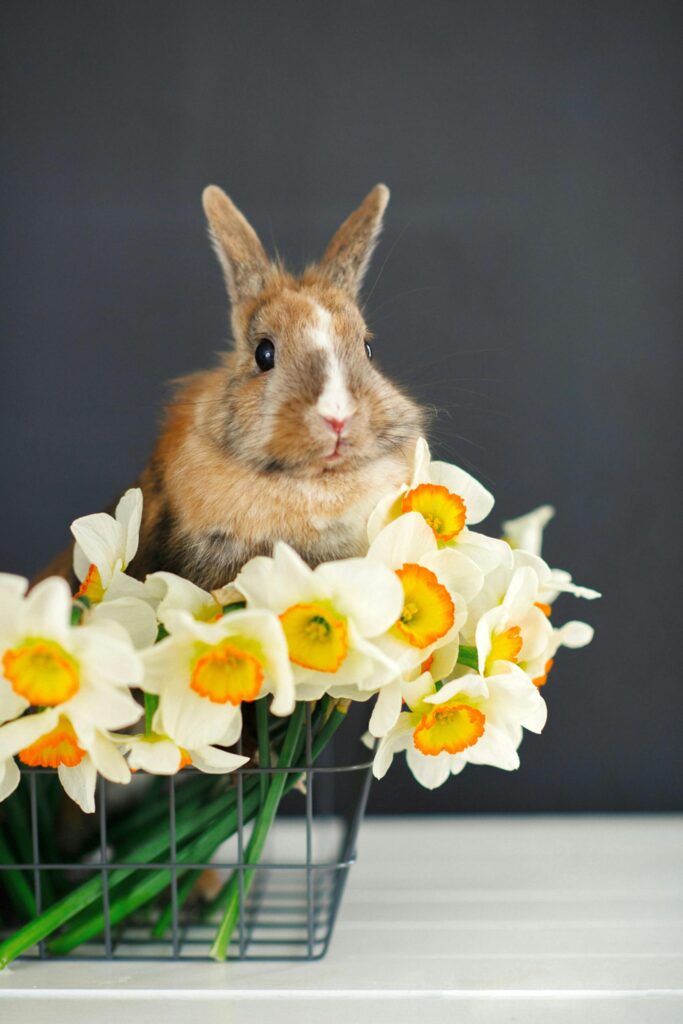
Rabbits are curious about their surroundings, and sometimes this curiosity leads them to nibble on things they shouldn’t! If you love surrounding yourself in flowers, or your rabbit enjoys hopping around the yard, this article is for you!
Flowers can add beauty to our gardens and homes, but unfortunately not all are safe for our furry friends! In fact, some flowers can be toxic to rabbits if ingested.
Understanding which flowers pose a threat is crucial for ensuring the safety and well-being of our beloved bunny companions.
In this article, we’ll discuss what flowers are poisonous to rabbits (with pictures!), shedding light on potential dangers and providing guidance on keeping these curious creatures safe!
Please understand that this is not a comprehensive list of poisonous plants to rabbits, but it does include many of the most popular ones.
Understanding Rabbit Physiology
Before delving into what flowers are poisonous to rabbits, it’s essential to understand why certain plants can be harmful to rabbits.
Rabbits have sensitive digestive systems, adapted to a diet of fibrous vegetation. While they may nibble on various plants out of curiosity or hunger, not all vegetation is safe for them.
Unlike some other animals, rabbits cannot vomit, making it difficult for them to expel toxins once ingested. Additionally, their complex gastrointestinal tract relies on a delicate balance of bacteria for proper digestion.
Disruption from ingesting toxic plants can lead to severe health complications or even prove fatal for rabbits.
Common Toxic Flowers
Here is a list of common flowers that are toxic to rabbits:
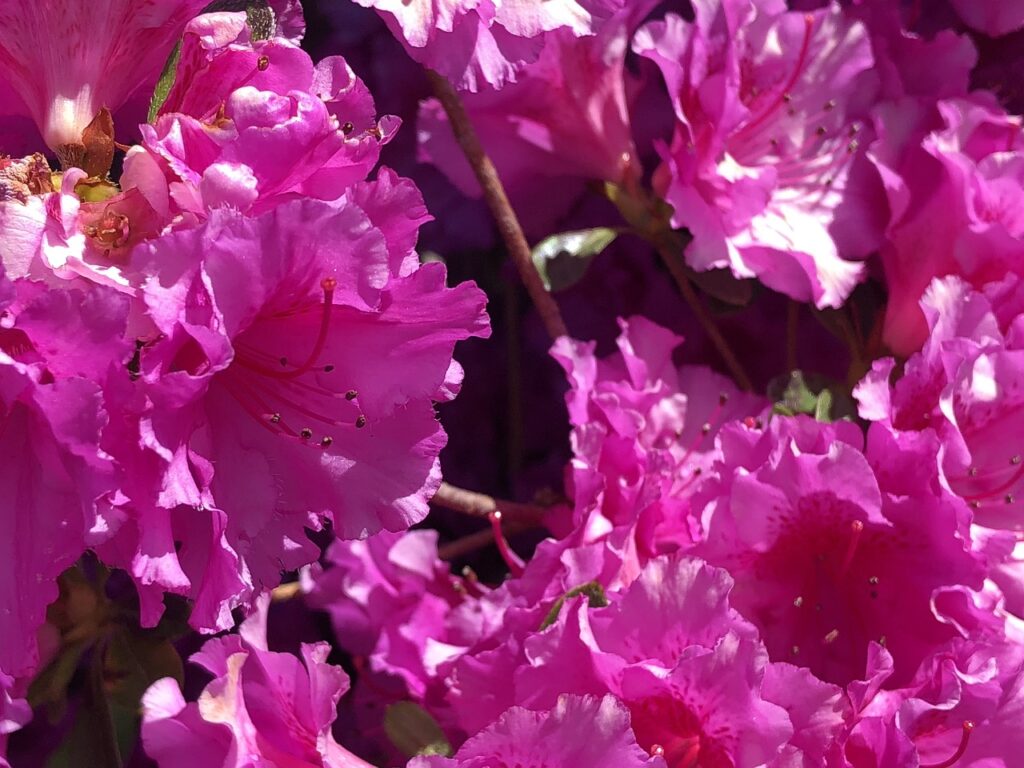
Azalea (Rhododendron spp.): Known for their vibrant blooms, azaleas contain toxins called grayanotoxins. These grayanotoxins affect the sodium channels in cell membranes, doing serious damage wherever they go! Ingesting even small amounts of these toxins can lead to symptoms such as diarrhea, weakness, and in severe cases, cardiovascular collapse. Rabbits should be kept away from azalea plants both indoors and outdoors!
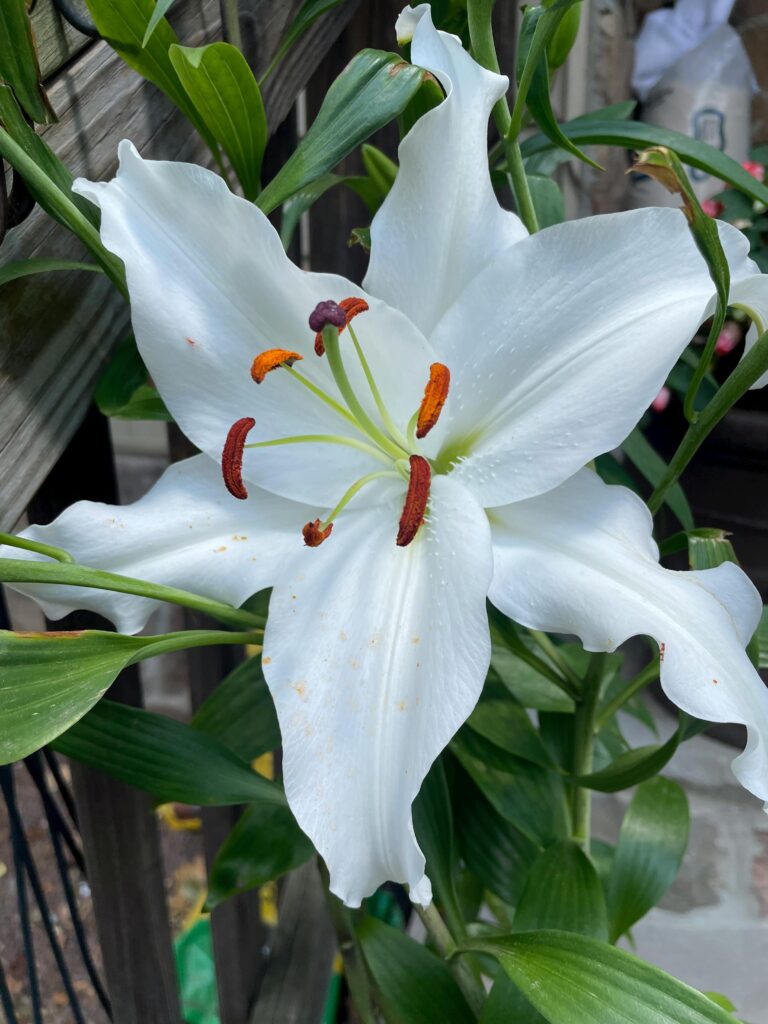
Lilies (Lilium spp. and Hemerocallis spp.): While lilies are popular flowers in bouquets and gardens, they pose a significant threat to pets if ingested. There is some debate on exactly how poisonous lilies are to rabbits, but in other pets such as cats, all parts of the plant, including the petals, leaves, and pollen, contain toxins that can cause kidney failure. Now, the danger of lilies isn’t quite as severe to rabbits as cats, but they are still poisonous in varying amounts. When even a small nibble can have dire consequences, it’s best to err on the side of caution and keep lilies out of reach!
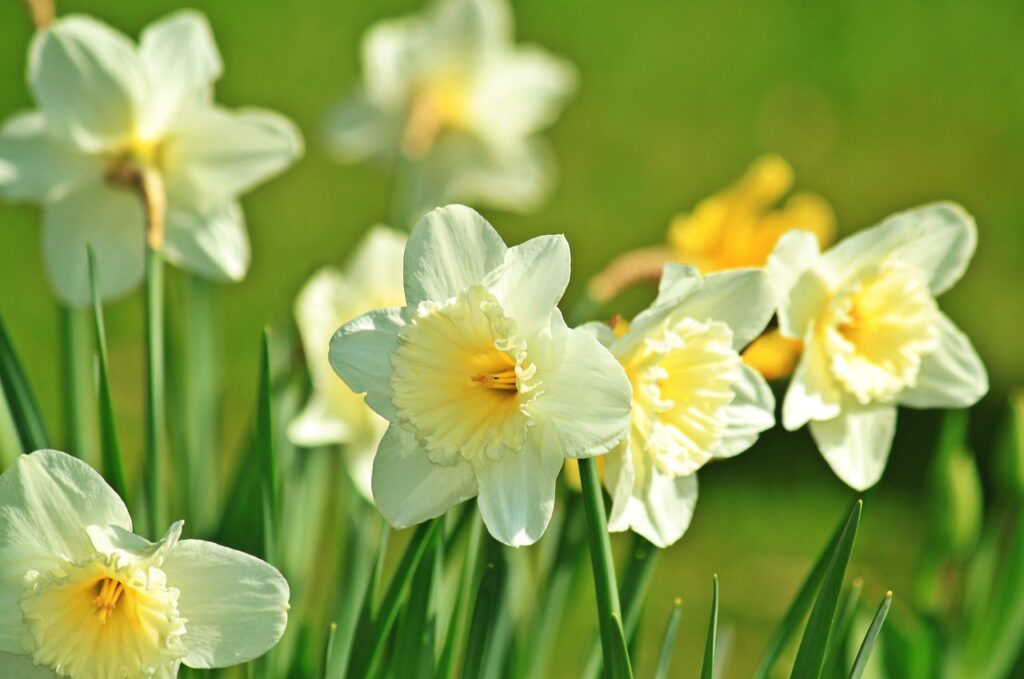
Daffodils (Narcissus spp.): Daffodils add a cheerful touch to gardens in the spring, but they contain toxic alkaloids that can harm rabbits if consumed. Symptoms of daffodil poisoning in rabbits may include drooling, diarrhea, abdominal pain, and in severe cases, convulsions or tremors. Keep your bunnies away from this common garden flower!
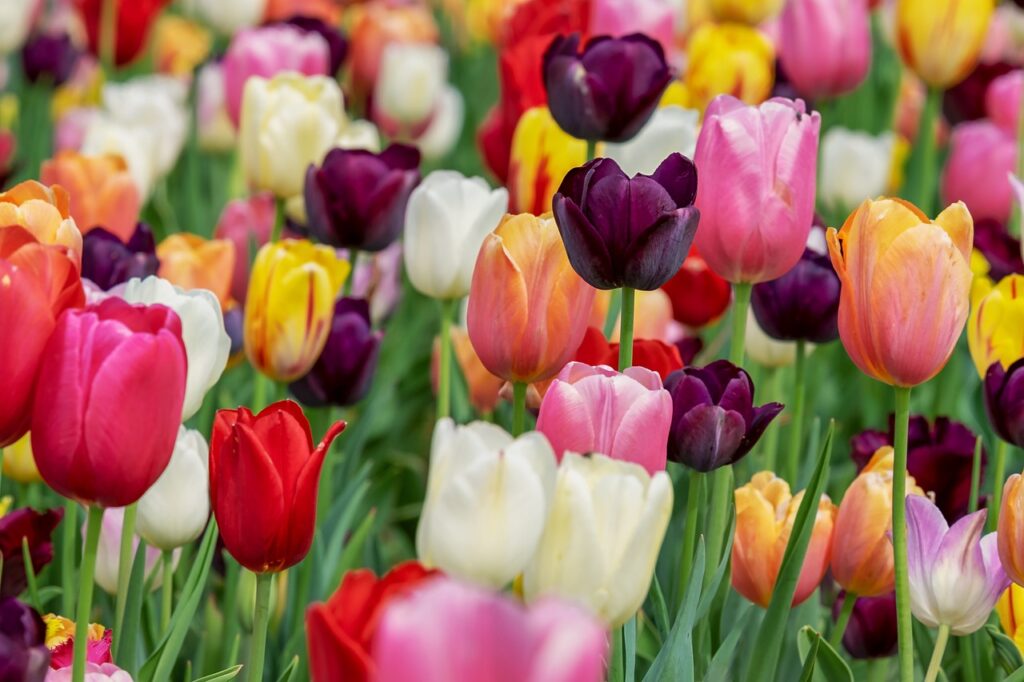
Tulips (Tulipa spp.): Another springtime favorite, tulips contain toxins that are concentrated in the bulb but present throughout the plant. Ingesting tulip bulbs or other parts of the plant can lead to gastrointestinal upset, drooling, and in severe cases, difficulty breathing or organ damage. Tulips are commonly grown outside and kept in vases inside, so be on the lookout while your rabbit is exploring!
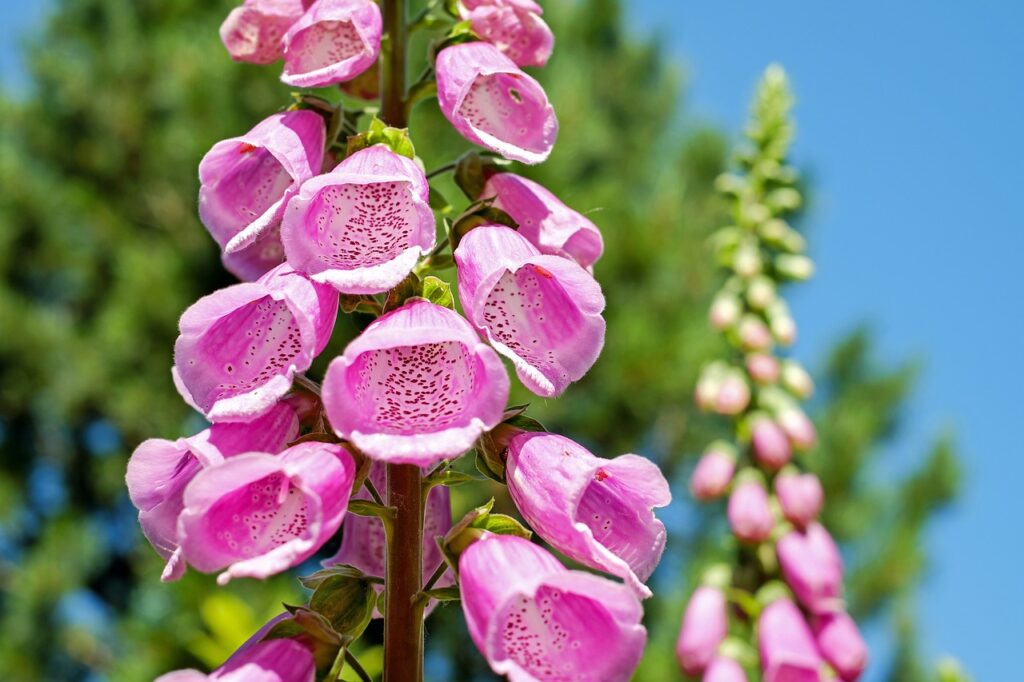
Foxglove (Digitalis spp.): With its tall spikes of bell-shaped flowers, foxglove may be an attractive addition to gardens, but it harbors cardiac glycosides that are highly toxic to rabbits. Ingesting even small amounts of foxglove can lead to symptoms such as diarrhea, irregular heart rhythm, and potentially fatal heart failure.
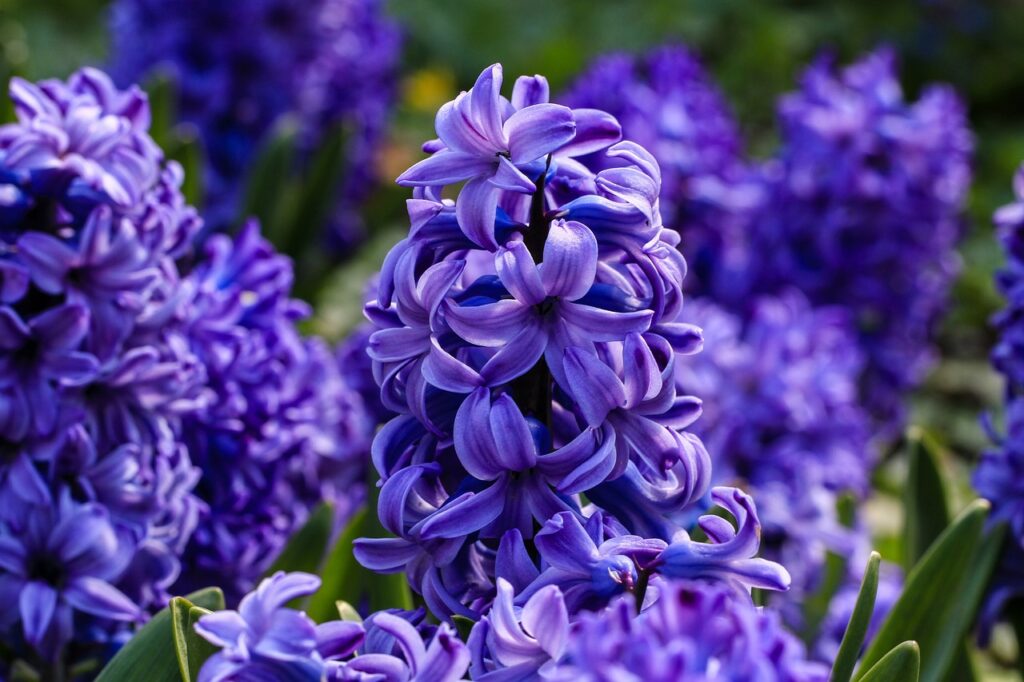
Hyacinths (Hyacinthus spp.): These fragrant flowers contain alkaloids that can cause gastrointestinal irritation in rabbits if ingested. Symptoms may include drooling, diarrhea, and abdominal pain. While hyacinths are popular in gardens and as indoor potted plants, they should be kept away from rabbits!
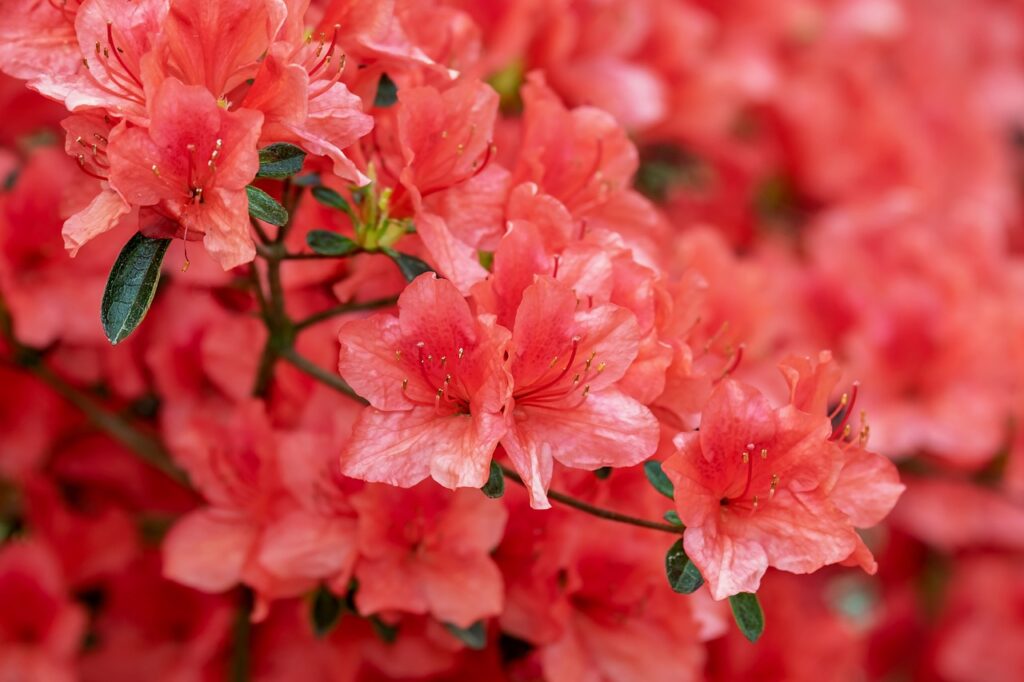
Rhododendron (Rhododendron spp.): Similar to azaleas, rhododendrons contain grayanotoxins that can pose a serious risk to rabbits if ingested. Symptoms of rhododendron poisoning in rabbits may include drooling, diarrhea, weakness, and cardiovascular issues. All parts of the rhododendron are poisonous to small pets so keep your bunnies away from them!
Prevention and Safety Measures
Know Your Plants: Familiarize yourself with the flowers and plants in your home and garden to identify any potential hazards to your rabbits! Research the toxicity of each plant species and take appropriate precautions.
Secure Enclosures: If you allow your rabbits to roam outdoors, ensure that they are confined to a safe and secure enclosure that does not contain any toxic plants. Regularly inspect the area for any new growth or potential hazards.
Limit Access: When bringing flowers indoors, such as in bouquets or potted plants, ensure that they are placed in areas inaccessible to rabbits. Consider hanging baskets or shelves to keep flowers out of reach.
Provide Safe Alternatives: To satisfy your rabbits’ natural urge to nibble, offer safe, rabbit-friendly plants such as parsley, cilantro, basil, or dandelion greens. These not only provide enrichment but also reduce the risk of them seeking out toxic plants!
Educate Others: Share information about toxic flowers with friends, family, and fellow rabbit owners to raise awareness and prevent accidental exposure to harmful plants.
Conclusion
While flowers can brighten our surroundings and lift our spirits, it’s essential to be mindful of the potential dangers they pose to our rabbit companions!
By familiarizing ourselves with what flowers are poisonous to rabbits and taking proactive measures to prevent exposure, we can help ensure the safety and well-being of our furry friends.
Whether indoors or outdoors, creating a rabbit-friendly environment free from harmful plants is key to fostering a happy and healthy relationship with your bunny!


